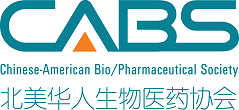Recap of Antibody Drug Conjugates Seminar
Date: August 29, 2020 @ 1:30 pm – October 29, 2020 @ 5:00 pm
Location: Online Zoom meeting
Antibody Drug Conjugates Seminar
On August 29, 2020, the Chinese American Biopharmaceutical Society (CABS) successfully hosted a webinar on Antibody Drug Conjugates (ADCs).
With the accelerated approval of Trodelvy in 2020, nine antibody drug conjugates now on the market have truly proven their potential. During the webinar, five experts from Seattle Genetics, Sutro Biopharma, Genentech, and Eli Lilly delved into the pioneering development of ADC from its early discovery to manufacturing CMC and clinical study. The speakers also emphasized the recent application of the ADC in fields other than oncology.
The webinar attracted more than 200 attendees from the biotech and pharmaceutical communities.
Dr. Ken Zhang, Co-Chair of Science and Technology Committee of CABS, kicked off the webinar with an introduction of CABS and Science Committee’s previous events.
Dr. Kristin Bedard, Vice President of Immuno-biology of Sutro Biopharma, started with the first talk on “Antibody Drug Conjugates - Using a Novel Technology to Produce First in Class Immune Modulating Cancer Drugs”. Dr. Bedard introduced Sutro’s proprietary technology on ADCs production in a cell free environment for rapid screening of lead candidates. She showed lead ADC molecule STRO-002 with its in vitro and in vivo activity and strong synergism with checkpoint blockades such as PD-L1. “One advantage of STRO-002 is its dual functions; it kills tumor cells through immunogenic cell death and releases tumor antigens that can further stimulate anti-tumor immunity”. The second story Dr. Bedard shared was about ADC development combining of a novel toll-like receptor (TLR) agonist and a traditional cytotoxic antibody drug conjugate warhead. It demonstrated more complete anti-tumor effects in preclinical tumor models and protective T cell mediated immunity. “This novel ADC technology can not only reduce tumor burden through direct killing but can also stimulate a protective and adaptive immune response against the tumor”, Dr. Bedard concluded her talk.
Dr. Chunze Li, Director/Principal Scientist/Group Leader at Genentech, presented the second talk on “Clinical Pharmacology Strategies in Supporting Drug Development and Approval of Antibody Drug Conjugates”. Dr. Li started her talk with an overview of ADC design concept, i.e., to increase the therapeutic window of cytotoxic agents. She highlighted a few major challenges in ADC design. Dr. Li presented an overview of clinical pharmacology strategy to support the development and approval of an ADC. Specifically, she provided a few examples to illustrate the unique clinical pharmacology consideration for ADCs, including bioanalytical strategies, PK and ADME characterizations, exposure-response analysis to inform dose selection and strategy to support dose recommendation in specific population (e.g., patients with renal and hepatic impairment).
Mr. Tao Li, Senior Manager, Seattle Genetics, presented the third talk on “CMC Challenges and Opportunities in ADC Drug Development and Lifecycle Management”. Considering the uniqueness of the ADC drug’s molecular structure, the development of ADC products have been full of Chemistry, Manufacturing and Controls (CMC) challenges and uncertainties. From the Regulatory Affairs perspective, Mr. Li covered the brief history of the regulatory policy evolution from FDA and EMA about the ADC development. He further discussed details about the eCTD Module 3 structures; CMC challenges of mAb, drug-linker and conjugate drug substance (DS), as well as drug product (DP) in-use stability; and the commercial lifecycle management during the ADC clinical trials and its commercialization.
Dr. Pillow started with an overview of ADC chemistry including conjugation, linker and payloads. He discussed the challenge of heterogeneous conjugations and described Genentech's efforts to engineer Cys in the antibody so that drugs can be conjugated at a specific site, which results in homogeneous conjugates. Then Dr. Pillow mentioned the challenge of a narrow therapeutic index for cytotoxic ADCs and potential strategies to overcome this. Dr. Pillow showed an example of how to use an ADC to deliver a protein degrader into the target cells to improve the PK, efficacy and potentially safety of the small molecule. Dr. Pillow continued with another example of conjugating antibiotics to an antibody for anti-MRSA infection treatment.
Dr. Songqing Na, Research Fellow, Immunology Research, Eli Lilly, presented the last talk on “Antibody Drug Conjugate (ADC) Beyond Oncotherapies”. Dr. Na indicated that ADC could be used to deliver other types of payload for diseases beyond oncology, such as inflammation. His first example was about ADC with LXR agonist as payload that specifically targeted monocytes but not liver hepatocyte cells and showed improved anti-inflammation properties without affecting hepatocyte function. Dr. Na continued with another example, using glucocorticoid as payload to attach different antibodies for delivering different targeting cell types. From cytokine expression and GR gene regulation, Ab conjugated glucocorticoid showed potent anti-inflammation in targeted cells. In comparison to glucocorticoid treatment, the ADC greatly reduced the systemic effects of the small molecule drug. Finally, anti-TNF-Glucocorticoid conjugate showed superior efficacy in human RA patients compared with anti-TNF alone in a recent clinical trial.
We would like to thank all five speakers for their time and efforts for this webinar. We also acknowledge Ken Zhang, Xiang Yi, Sihong Zhou, Chenchao Gao, Jenen Tan, Yan Wang, Hesong Han, Guanghui Han, Carrie Wang, Yang Tian for organizing the event. To learn more about CABS, please visit our website www.cabsweb.org.
